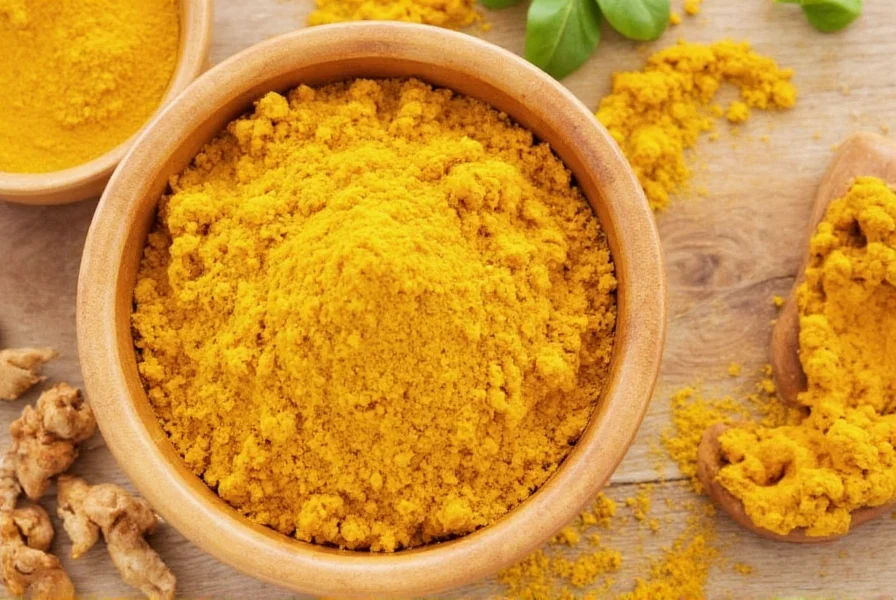Curcumin, the active compound in turmeric, has generated interest in weight management research. While preliminary studies suggest possible mechanisms that could support metabolic health, the evidence for significant weight loss in humans remains limited and inconclusive.
Understanding Turmeric's Role in Weight Management
Turmeric (Curcuma longa) is a spice commonly used in traditional medicine and cooking, particularly in South Asian cuisine. Its primary active component, curcumin, accounts for approximately 2-8% of turmeric by weight and is responsible for most of its studied health effects. When examining does turmeric help with weight loss, researchers have identified several potential biological pathways worth exploring.

Scientific Mechanisms: How Turmeric Might Influence Weight
Research suggests curcumin may affect weight through multiple physiological pathways:
- Anti-inflammatory effects: Chronic inflammation is associated with obesity and metabolic disorders. Curcumin's potent anti-inflammatory properties may help address this underlying factor.
- Adipose tissue regulation: Some studies indicate curcumin may influence fat cell formation and function.
- Insulin sensitivity improvement: Better insulin function can support healthier metabolism.
- Lipid metabolism modulation: Potential effects on how the body processes fats.
Evidence Review: What Research Says About Turmeric for Weight Loss
To understand is turmeric effective for weight loss, we need to examine the scientific literature objectively. Most human studies have been small-scale or short-term, with mixed results.
| Study | Participants | Duration | Key Findings |
|---|---|---|---|
| Di Pierro et al. (2015) | 44 overweight adults | 8 weeks | Significant reduction in body fat percentage compared to placebo |
| Asadi et al. (2019) | 70 women with PCOS | 12 weeks | Modest improvements in BMI and waist circumference |
| Chuengsamarn et al. (2012) | 240 adults with metabolic syndrome | 9 months | Improved insulin sensitivity but no significant weight changes |
| He et al. (2016) meta-analysis | Multiple studies | N/A | Modest effects on weight and BMI, but high risk of bias in included studies |
Realistic Expectations for Turmeric and Weight Management
When considering can turmeric help you lose weight, it's crucial to maintain realistic expectations. The available evidence suggests:
- Any weight loss effects from turmeric are likely to be modest at best
- Results vary significantly between individuals
- Turmeric works best as part of a comprehensive approach including diet and exercise
- Effects may take several weeks to become noticeable
- Most studies showing benefits used curcumin supplements rather than culinary turmeric
Practical Considerations for Using Turmeric
If you're exploring using turmeric for weight loss benefits, consider these practical factors:
Bioavailability Challenges
Curcumin has notoriously poor bioavailability. When consumed alone, very little is absorbed into the bloodstream. Most effective supplements combine curcumin with:
- Piperine (from black pepper) - increases absorption by up to 2000%
- Lipids/fats - curcumin is fat-soluble
- Specialized formulations like phospholipid complexes
Dosage Recommendations
Research studies typically use:
- 500-2,000 mg of curcumin extract daily
- Standardized to 95% curcuminoids
- Divided into 2-3 doses throughout the day
For culinary use, adding 1-3 grams of turmeric powder to meals provides approximately 20-60 mg of curcumin, which is significantly less than research doses.

Safety and Side Effects
Turmeric is generally safe when consumed in food amounts. Higher supplement doses may cause:
- Digestive discomfort in some individuals
- Increased risk of bleeding for those on blood thinners
- Potential interactions with diabetes medications
- Rare cases of allergic reactions
Consult with a healthcare provider before starting turmeric supplements, especially if you have medical conditions or take medications. This is particularly important when considering is turmeric safe for weight loss supplements.
Integrating Turmeric into a Comprehensive Weight Management Plan
For those investigating how to use turmeric for weight loss effectively, remember that no single food or supplement can replace fundamental weight management strategies. Turmeric should be viewed as a potential complementary approach rather than a primary solution.
The most effective weight management plans include:
- Balanced, nutrient-dense eating patterns
- Regular physical activity
- Adequate sleep and stress management
- Behavioral strategies for sustainable habits
- Professional guidance when needed
Conclusion: Turmeric's Role in Weight Management
The question is turmeric good for weight loss doesn't have a simple yes or no answer. Current scientific evidence suggests turmeric, particularly its curcumin component, may offer some supportive benefits for metabolic health and modest weight management effects when used consistently as part of a comprehensive approach.
However, expectations should be realistic. Turmeric is not a magic solution for weight loss, and its effects are likely to be modest compared to foundational lifestyle changes. More high-quality, long-term human studies are needed to fully understand turmeric's potential role in weight management strategies.










 浙公网安备
33010002000092号
浙公网安备
33010002000092号 浙B2-20120091-4
浙B2-20120091-4